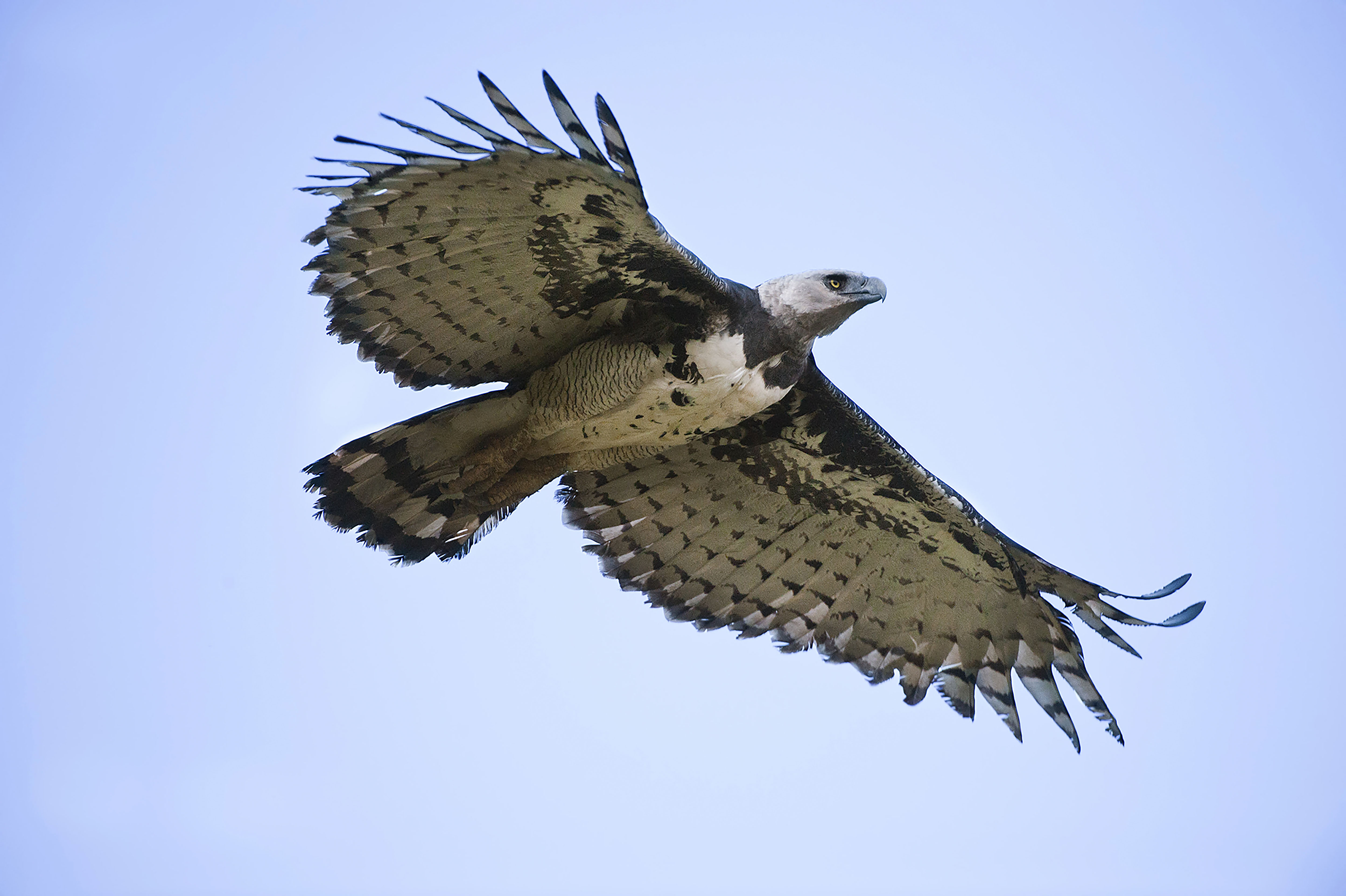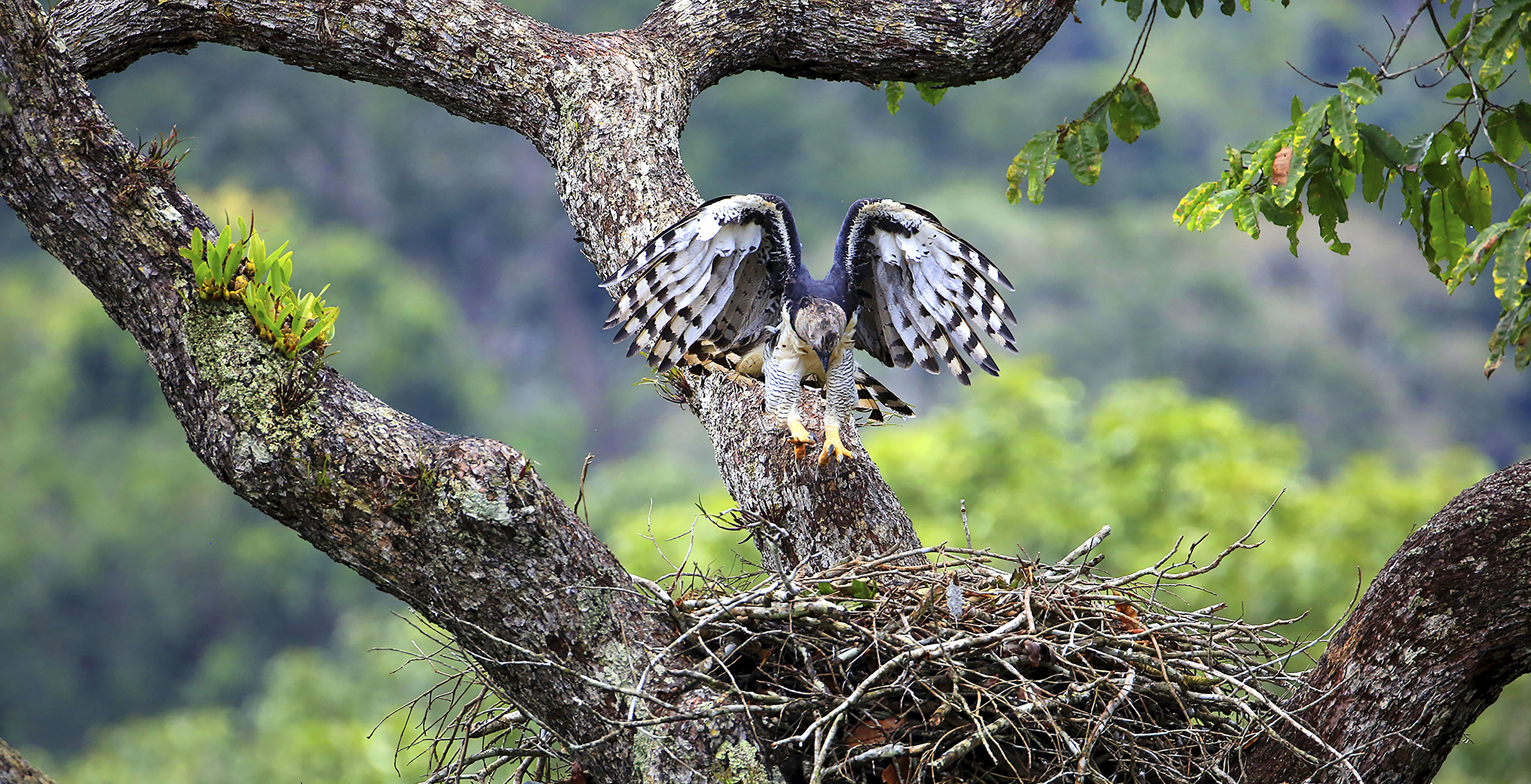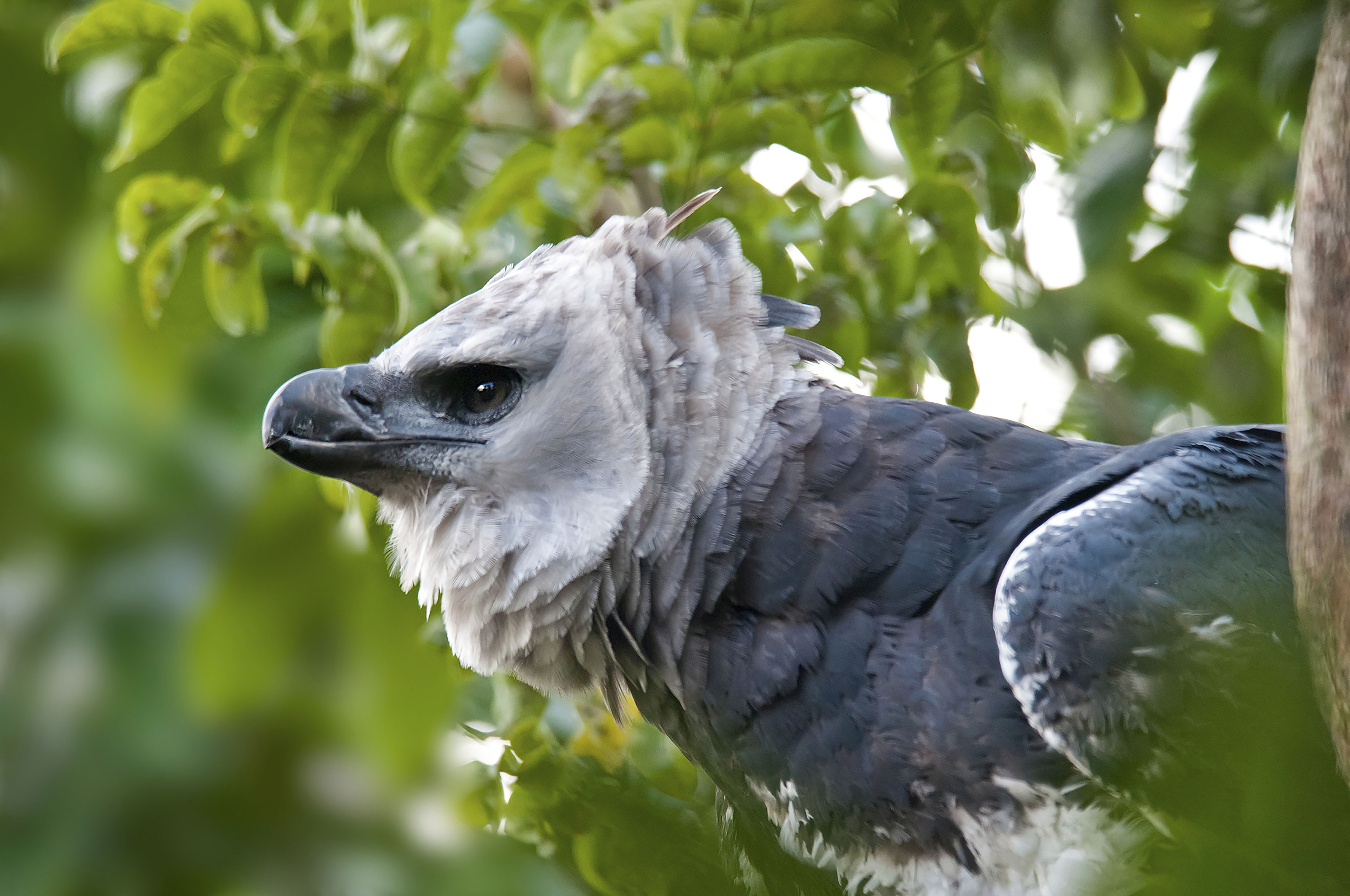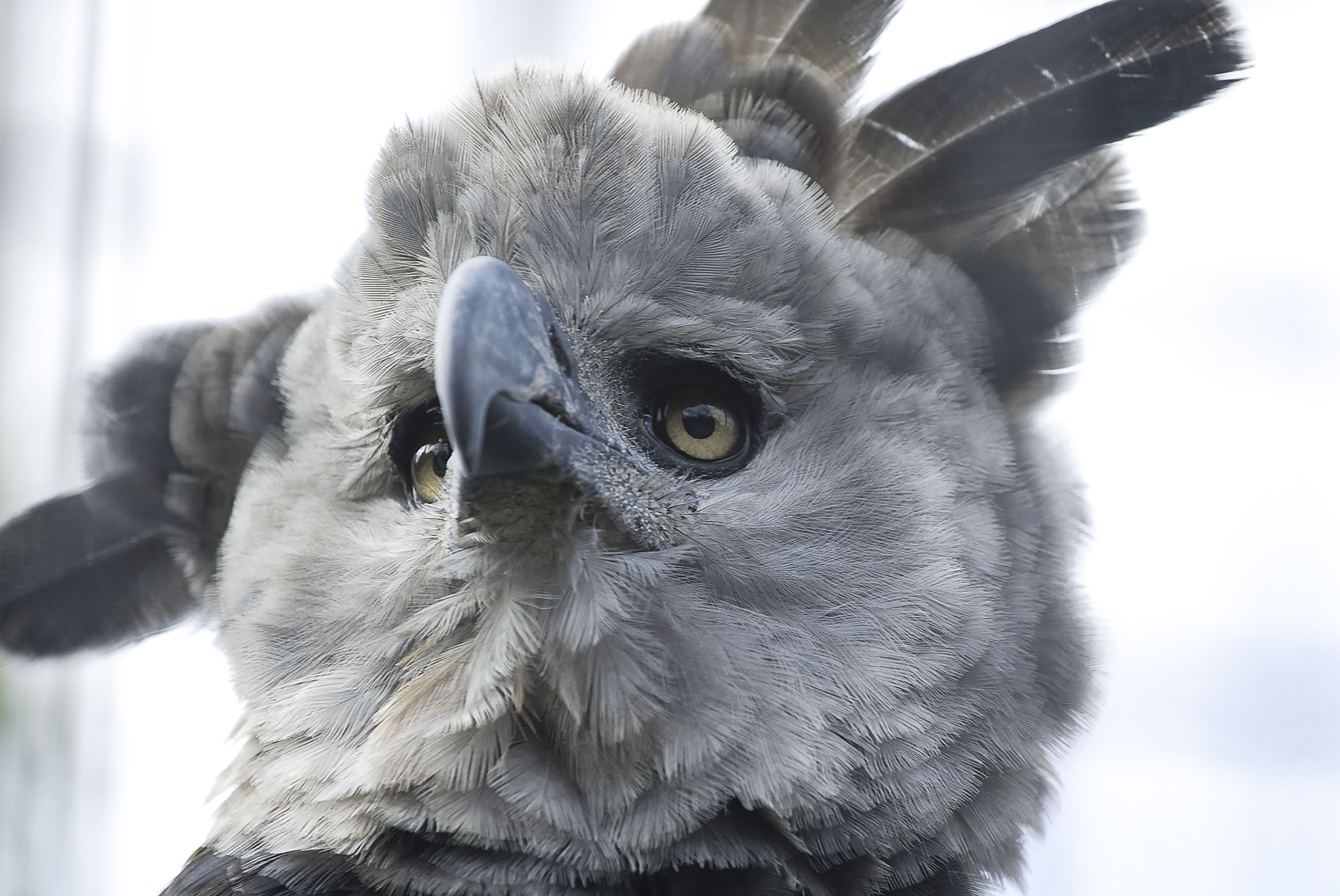Harpy Eagle
(Harpia harpyja)
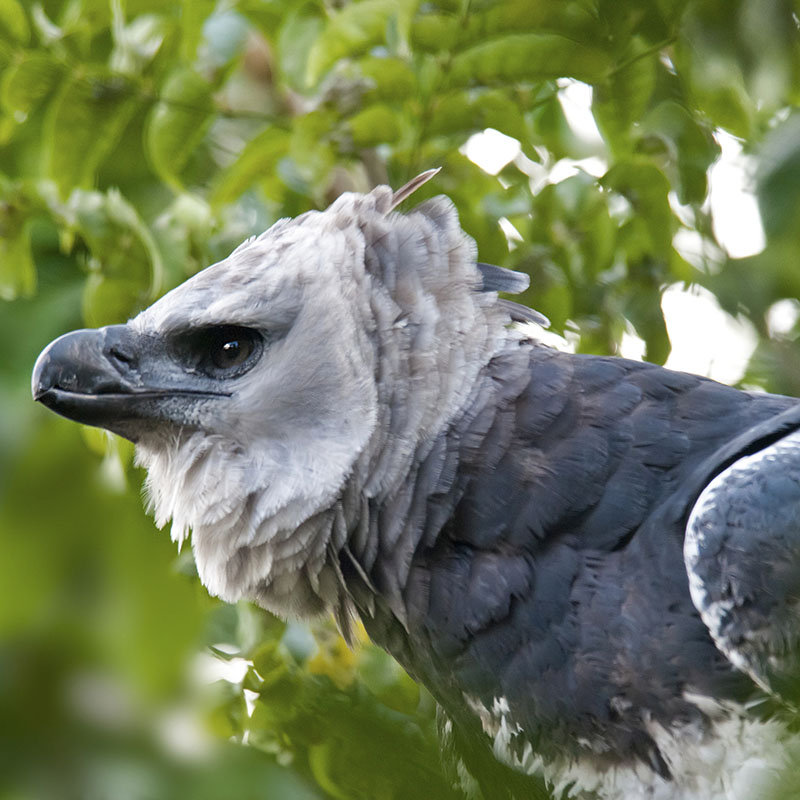
Rio Negro-Juru Moist Forests
STATISTICS
Height up to
102 cm
Weight up to
9 kgs
Lifespan
35 years
Wingspan
2 meters
Arboreal - Gliding - Sedentary - Territorial
The largest species of eagle in the world, the Harpy Eagle is mostly black with long, grey, tail feathers painted with horizontal black bars. Its crown also consists of long grey feathers, and it has a black bill and yellow feet. The Harpy Eagle is a mighty bird of prey that uses its long talons and powerful legs to snatch prey from the forest canopy and carry it away to feed.
The Harpy Eagle preys mainly on sloths and primates, but it has been known to feed on smaller reptiles and even small deer. Like most predators, its primary ecosystem role is to keep prey populations in check. As such, it has an essential role in controlling mesopredators such as capuchin monkeys (Cebus spp.). Capuchin monkeys often prey on bird eggs, and if left unchecked these mesopredators could lead to the local extinctions of sensitive species.
The Harpy Eagle prefers undisturbed forests but will also hunt along open patches of land. It is generally found in mid to upper levels of rainforest canopies where it is able to find preferred prey. This species forms breeding pairs that last for life and build their nests together in large trees above the forest floor. The female lays two eggs which are incubated for 56 days. However, both parents will only raise one chick.
BIODIVERSITY BENEFIT
Prey Population Control
THREATS
Habitat Loss
Due to logging and farming.
Hunted
Shot by farmers to defend their livestock.
PROTECT THE WILDARK 100
